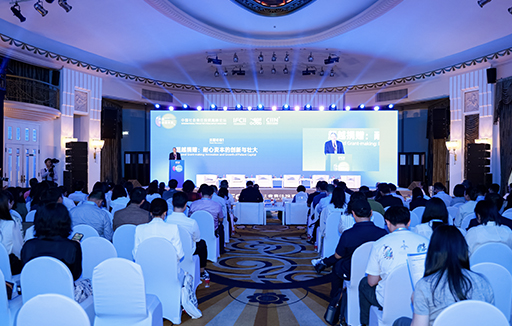
With increasing acceptance of the Dual Carbon Goals (DCGs) and the concept of "building a community with a shared future for mankind," there is a growing consensus on social and economic transition towards higher quality development and a sustainable future. In practice, the path to high-quality development faces many challenges, especially insufficient funding. So, how can we help those groups and institutions that find it difficult to obtain financial support during the transition? How can finance better provide new impetus for new quality productive forces and jointly build a sustainable future?
From May 30 to 31, over sixty participants, including Guangshao Tu, Executive Director of Shanghai Advanced Institute of Finance (SAIF), Shanghai Jiao Tong University, Duoguang Bei, President of the Chinese Academy of Financial Inclusion (CAFI) and Yaowu Xu, Director of the Shanghai Research Center for Financial Stability and Development, gathered at the 2024 International Forum for China Impact Investing (IFCII) hosted by CAFI and organized by SAIF and Yicai Research Institute. The forum focused on sustainable finance, patient capital, transition finance tools, sustainable financing channels for SMEs, green finance, and sustainability information disclosure, calling for attention to the synergies and innovation of the investment ecosystem.
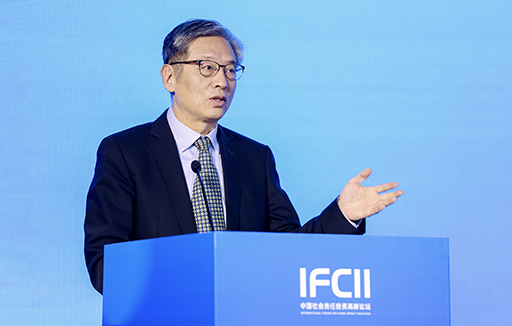
Guangshao Tu, Executive Director of SAIF
Guangshao Tu, Executive Director of SAIF, delivered a keynote speech on "Sustainable Finance and Financial Sustainability." He highlighted the importance of sustainable finance in five aspects: First, it promotes the high-quality development in financial services; second, it gives full play to the role of financial services in supporting the real economy; third, it serves as a key leverage for the strategy of building a financial powerhouse; fourth, it is an important area for high-level financial openness; fifth, it provides opportunities for the financial industry itself.
The concept of patient capital was introduced at a recent meeting of the Political Bureau of the CPC Central Committee, advocating for venture capital to focus more on long-term and future returns and value. Experts at the forum believe that strengthening patient capital is crucial for promoting technological innovation and developing new quality productive forces. It also helps support the transformation of traditional industries and make them greener and more efficient.
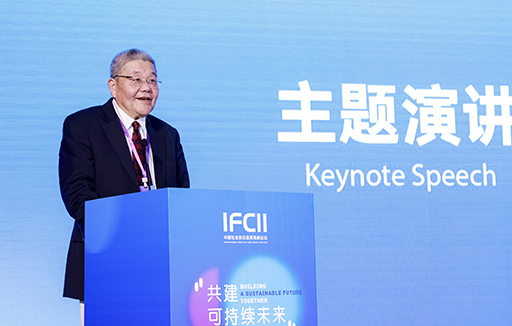
Xiaoxi Sun, Former Vice Chairman of the National Council for Social Security Fund (NCSSF)
Xiaoxi Sun, Former Vice Chairman of the National Council for Social Security Fund (NCSSF), stated that as patient capital, NCSSF adheres to the principles of long-term investment, value investing, responsible investment, and sustainable investing, which are crucial for achieving the fund's development goals. NCSSF still needs to address issues such as expanding funding sources, improving assessment mechanisms, and broadening investment scope to help innovate and strengthen patient capital.
The future of sustainable development relies on the active participation of SMEs, but sustainable financing and investing for SMEs remain limited. According to the latest report by CAFI, Financing SMEs for Sustainability in China: 86% of green credit mainly flows to large-scale green projects and large and medium-sized enterprises. In contrast, over 70% of inclusive micro and small enterprise loans and 80% of the inclusive loans for micro and small enterprises are not included in green loan statistics due to high standards or their exclusion from the Green Industry Catalogue.
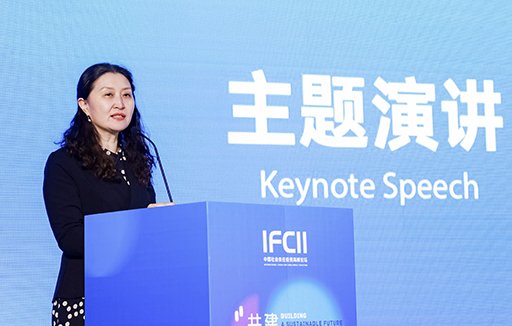
Chunyan Chen, Member of the Party Committee and Secretary General, Asset Management Association of China
Chunyan Chen, Member of the Party Committee and Secretary General, Asset Management Association of China, said, "Private equity and venture capital funds play an important role in fostering new quality productive forces and expanding financing channels for technologically innovative enterprises through the capital market." Providing financing and investment for SMEs requires innovation and extensive participation from financial institutions. Weizhong Zhang, Party Committee Secretary and Chairman of SPD Bank, introduced the bank's practices in advancing inclusive finance. Guided by “Five Priorities” and (technology finance, green finance, inclusive finance, pension finance, and digital finance) and in order to support Shanghai's "five centers" development plans, proposed a "Digital and Intelligent" development strategy and launched the "Digital and Intelligent Inclusive Finance" service system to continuously enhance the coverage, accessibility, and convenience of inclusive financial services for small and micro enterprises (SMEs) through product innovation, organizational support, and digital empowerment. This approach aims to continuously strengthen digital inclusive service capabilities, reduce financing costs for enterprises, and provide differentiated lifecycle services to SMEs, thereby focusing on the sustainable development of the real economy.
Green finance is an important part of the “Five Priorities”. It aims to support economic activities that improve the environment, respond to climate change, and promote resource saving and use efficiency. This includes green bonds, green credit, and green funds, among other financial instruments. Good green finance not only requires guiding financial resources to support green economic activities for near-zero emission but also the low-carbon transition of high-carbon industries. Thus, transition finance has emerged and been explored. For example, Quzhou has pioneered a “5e” intelligent digital system based on carbon accounts, which includes e-account book of carbon emission, e-report of carbon emission credit investigation, e-publish of carbon policy, e-market of carbon finance, and e-assessment of carbon emission efficiency. This system effectively addresses the three common challenges in low-carbon transition development, i.e., identifying low-carbon assets, managing targeted abatement by enterprises, and low-carbon transition governance by governments." said Shaohua Xu, Vice President of the People's Bank of China Quzhou Branch
Sustainable development information disclosure serves as a crucial reference for enterprises and listed companies to build a sustainable future together. Recently, under the supervision of the China Securities Regulatory Commission (CSRC), the Shanghai, Shenzhen, and Beijing Stock Exchanges officially released the Guidelines for the Disclosure of Sustainable Development Reports by Listed Companies (Guidelines). Based on the summary of existing domestic and international disclosure systems and best practices, the Guidelines refers to national standards and industry norms, establishes a rules-based system for sustainable information disclosure of listed companies that aligns with China’s national conditions.
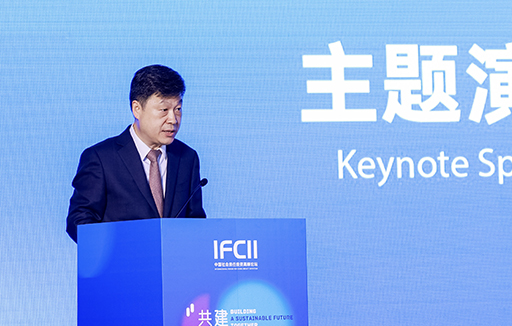
Chunsheng Pan, Vice President of the China Association for Public Companies
Chunsheng Pan, Vice President of the China Association for Public Companies, said, “The association has been collecting ESG best practices and conducting ESG questionnaires for three consecutive years. In 2023, we collected 451 best practices and 1,297 questionnaires. The relevant survey conclusions were incorporated into the 2023 ESG Development Report of Chinese Listed Companies. This shows that listed companies are deepening their understanding of sustainable development with greater motivation to carry out ESG practices, and that they are improving their ESG management capabilities to boost the quality and efficiency of sustainable development practices.
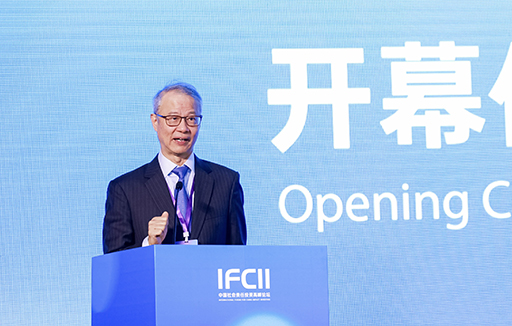
Duoguang Bei, President of CAF
“Sustainable development covers a very wide range of areas,” said Duoguang Bei, President of CAFI, in an interview. “Currently, social opinion is more focused on climate and environment, but there are also social issues such as rural revitalization, financial health, and fair development. Achieving these social missions requires appropriate financial resources and support, participation of more mainstream financial institutions, and the application of new concepts such as impact investment and blended finance. This will truly lead to joint development and win-win outcomes.
THE END